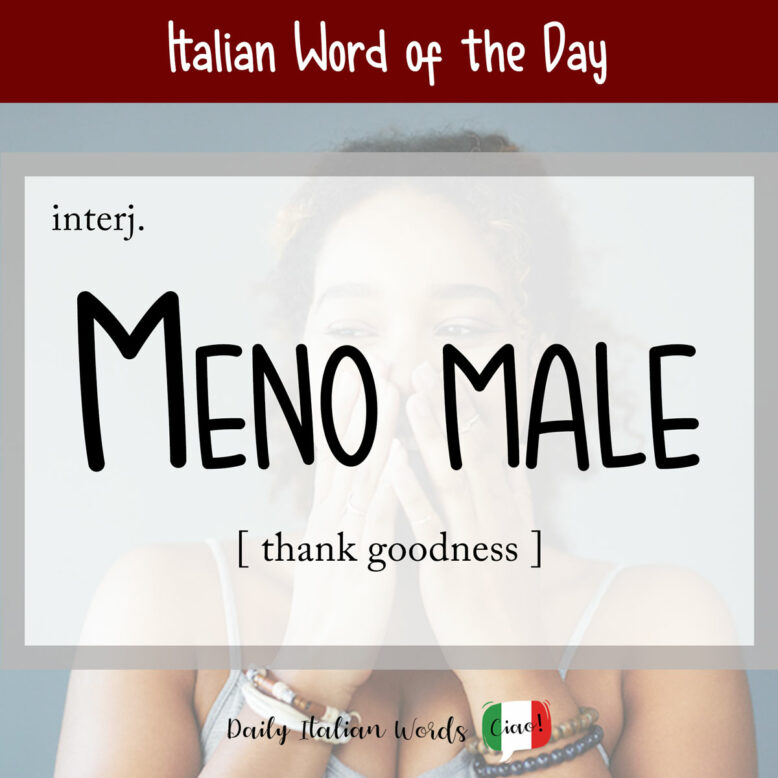In Italian, there’s no better exclamation to convey your relief than meno male. In English, it can be translated as thank goodness, or more casually, it’s like letting out a big sigh of relief – phew!
meno male

Meno means less whereas male means bad, so the expression literally means “less bad.”
Domani non dovrebbe piovere. – Meno male!
It shouldn’t rain tomorrow. – Phew!

There is some debate amongst academics about whether meno male should be written as one word or two. According to Accademia della Crusca, there are more registered cases of meno male being written as two words rather than one. What’s more, many dictionaries don’t even treat it as a standalone word but rather as an expression under meno (less).
Regardless, the Accademia della Crusca suggests that both variations are correct and even encourages the use of the unified spelling to distinguish it from the alternative meaning “less bad / not as bad.“
Menomale che ti senti meno male di ieri.
Thank goodness you don’t feel as bad as yesterday.
If a declarative sentence follows meno male che… (thank goodness that…), the verb in that sentence should be in the indicative mood, not the subjunctive. For example:
Meno male che ci sei tu!
(Incorrect – Meno male che si sia tu!)
Thank goodness you are here!
There are a few possible synonyms for meno male including:
- fortunatamente = fortunately, luckily
- per fortuna = fortunately, luckily
- grazie a Dio = thank God
- grazie al cielo = thank goodness
Heather Broster is a graduate with honours in linguistics from the University of Western Ontario. She is an aspiring polyglot, proficient in English and Italian, as well as Japanese, Welsh, and French to varying degrees of fluency. Originally from Toronto, Heather has resided in various countries, notably Italy for a period of six years. Her primary focus lies in the fields of language acquisition, education, and bilingual instruction.


